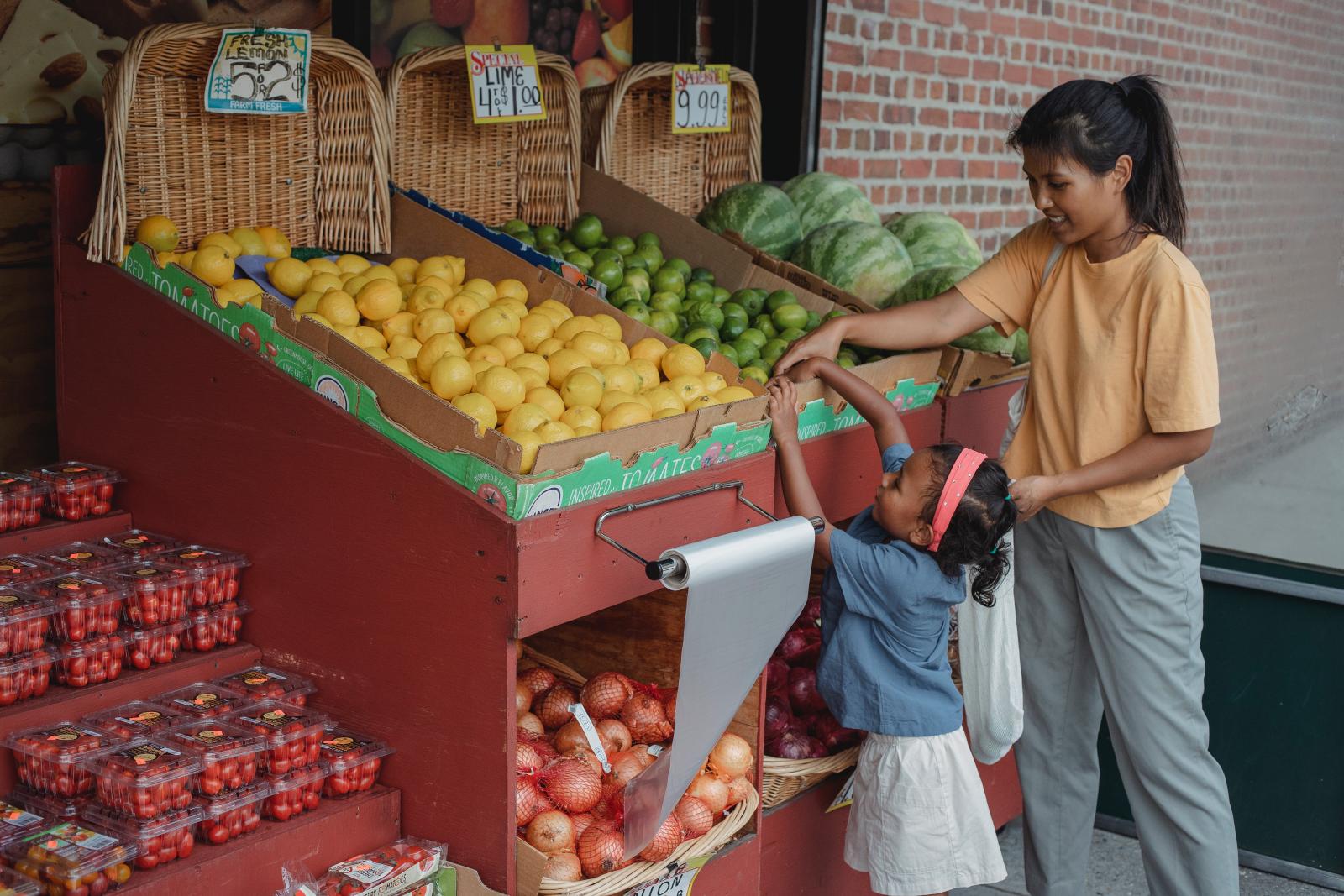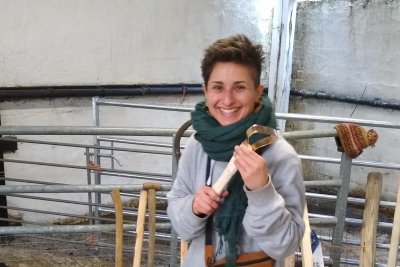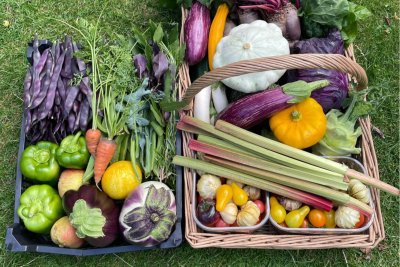Food insecurity reveals baked-in institutional racism
To find policy decisions and mechanisms that create structural and institutional racism in the UK, we need look no further than the disproportionate impact of household food insecurity on people from ethnic minority communities.

A blog by our Right to Food project coordinator Imogen Richmond Bishop and independent human rights researcher Sara Bailey.
In March 2021, as the Sewell report declared institutional racism to be a fiction, the UK Government released statistics revealing that on the eve of the COVID-19 pandemic, households where the head was Black were more than twice as likely to be food insecure than White households. And while hypotheses regarding the disproportionate COVID-19 deaths among ethnic minority groups have coalesced around their increased exposure to infection, food insecurity – and its bedfellow, malnutrition – cannot yet be erased from the picture. As health and medical experts have underscored, research ‘points to a role for nutritional status in resilience to infection and as a mediator of its effects’ with adequate ‘intakes of energy, macronutrients, and micronutrients…critical for immune functioning’.
Food insecurity is never inevitable. In a market economy it is linked, first and foremost, to affordability. Put simply, can an individual or family afford to meet the cost of its necessities, from rent and heating to food and transport? According to the Food Foundation, a year into the pandemic, the answer to that question for two million people is a resounding ‘no’. Moreover, the Food Foundation demonstrates that throughout the crisis, ethnic minority communities have consistently encountered higher levels of food insecurity than White ethnic groups, thereby widening pre-existing inequalities in access to nutritious food.
It is difficult not to attribute the disproportionate levels of food insecurity among ethnic minority groups to institutional racism. For one, there have long been deep racialised disparities in respect of access to secure, well-paid employment. Prior to the pandemic, 78 percent of White people were employed compared with 66 percent of people from all other ethnic groups. Ethnic minority groups were, moreover, facing a triple hit of lower pay, temporary work and too few hours. For example, 1 in 24 ethnic minority workers were on zero-hour contracts compared to 1 in 42 White workers while 1 in 13 ethnic minority workers were in temporary work compared to 1 in 19 White workers. COVID-19 has exacerbated these pre-existing inequalities: ethnic minority workers have suffered the brunt of job cuts during the pandemic with the number of ethnic minority jobs dropping by 26 times more than the drop in employment among White workers.
Welfare policies in the UK also disproportionately disadvantage ethnic minority groups. A cumulative impact assessment of recent tax and welfare reforms by the Equalities and Human Rights Commission found that the households experiencing the smallest financial loss were White households, with Asian households and Black households being two of the groups that lost out the most. One key example of how welfare reform has disproportionately impacted food insecurity for ethnic minority families can be seen through the effect that the “two-child limit” on welfare payments has had. In the latest food insecurity data it was clear that families with two or more children experienced disproportionately high rates of food insecurity and ethnic minorities are more likely than White families to have two or more children.
Just as disturbing is the ‘No Recourse to Public Funds’ (NRPF) policy – one strand of a suite of policies aimed at creating a ‘Hostile Environment’ for migrants. It currently affects an estimated 1.4 million people. A person with NRPF cannot access most welfare benefits or social housing but they can access publicly-funded services that are not listed as ‘public funds’ for immigration purposes such as primary and secondary education and healthcare. Without the safety net of social security, many families with NRPF end up living in destitution, even becoming street homeless, and are at a high risk of exploitation and abuse.
While the Government doesn’t collect data on the numbers of individuals affected by NRPF disaggregated by ethnicity, according to Citizens Advice, the burden of NRPF falls on ethnic minorities in the UK; 82% of people helped with an NRPF issue by the Citizens Advice in the last year were Black, Asian or from another minority ethnic background.
A further element of ‘Hostile Environment’ policy denies free school meals to undocumented children, leaving children hungry and socially isolated and parents forced to incur debt to cover the cost of school meals. Furthermore asylum seekers, most of whom are from ethnic minority backgrounds, experience extremely high rates of food insecurity that have been further exacerbated by COVID-19. While their claim for refugee status is in progress, a process that can take years, asylum seekers are prohibited from working and forced to survive on just £36.95 a week, often in accommodation which lacks adequate cooking facilities. Desperate to stay connected to their friends and families during the lockdown, community groups have observed asylum seekers forfeiting food in order to be able to purchase mobile phone data.
Last year, the first installment of the National Food Strategy asserted that that COVID-19 ‘is a highly discriminatory virus, affecting Black and Asian people more than white people […] and the poor more than the rich.’ However, it is not the virus that discriminates, but the government policies which impact unfairly on the health, well-being and economic prospects of ethnic minorities in the UK.
With a modicum of political will, the eradication of food insecurity for all social groups in the UK, without discrimination, could easily be achieved. For one, the Government could incorporate its international legal obligation to ensure the right to food into domestic law which would legally obligate it at the domestic level to ensure that all people present within its jurisdiction - irrespective of their immigration status - have access to adequate nutritious food.
Further, the UK Government could follow the lead of Scotland and Wales and implement Section 1 of the Equality Act - commonly referred to as the ‘socio-economic duty'; this would require public authorities to assess the impact of their policies and practices on socially and economically deprived groups with a particular view to their impact on groups with protected characteristics including race. Given that the UK is the fourth to fifth richest country in the world, social security benefits such as universal credit and asylum support could also easily be uplifted in line with OECD averages in order that they truly meet the cost of living in the UK whilst the NRPF condition could swiftly be revoked. Equally, the UK could easily afford to extend support such as free school meals or Healthy Start vouchers to all children who need them, irrespective of their immigration status. That these measures have not been taken, even as the state of racial inequality in the UK has never been so stark, is a damning indictment of current government policy.
All opinion's expressed in this blog are the author's own
Published Friday 11 June 2021
Right to Food: Everyone has the right to enjoy safe, nutritious and sustainable food. This project advocates the realisation of the Right to Food in UK law.





